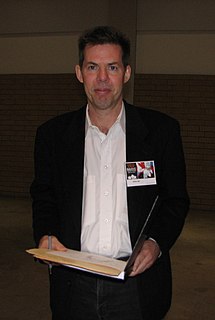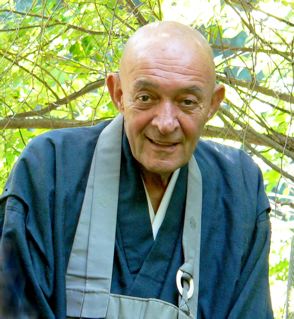A Quote by Orson Scott Card
Related Quotes
Sometimes, when we're terrified of embracing our true calling, we'll pursue a shadow calling instead. That shadow career is a metaphor for our real career. Its shape is similar, its contours feel tantalizingly the same. But a shadow career entails no real risk. If we fail at a shadow career, the consequences are meaningless to us. Are you pursuing a shadow career?
Reality became for me a problem after my experience with LSD. Before, I had believed there was only one reality, the reality of everyday life. Just one true reality and the rest was imagination and was not real. But under the influence of LSD, I entered into realities which were as real and even more real than the one of everyday. And I thought about the nature of reality and I got some deeper insights.
Reality television is to television what marble and gold are to real estate. The point is to dispense with the idea of taste. It's all id. The more unrestrained the better. We all know that 'reality' in reality television is not real. That anybody who would participate in reality television is a fake. But pretending otherwise makes them real.
I thought the most beautiful thing in the world must be shadow, the million moving shapes and cul-de-sacs of shadow. There was shadow in bureau drawers and closets and suitcases, and shadow under houses and trees and stones, and shadow at the back of people's eyes and smiles, and shadow, miles and miles and miles of it, on the night side of the earth.
A book no more contains reality than a clock contains time. A book may measure so-called reality as a clock measures so-called time; a book may create an illusion of reality as a clock creates an illusion of time; a book may be real, just as a clock is real (both more real, perhaps, than those ideas to which they allude); but let's not kid ourselves - all a clock contains is wheels and springs and all a book contains is sentences.
The second thing: nobody has ever been able to drop the ego because ego is not a reality that you can drop; anything to be dropped at least has to be real, substantial. Ego is just a notion, an idea. You cannot drop it, you can only understand it. Can you drop your shadow? You can run as fast as you want but your shadow will run at the same speed, exactly the same speed.
Evil (ignorance) is like a shadow-- it has no real substance of its own, it is simply a lack of light. You cannot cause a shadow to disappear by trying to fight it, stamp on it, by railing against it, or any other form of emotional or physical resistance. In order to cause a shadow to disappear, you must shine light on it
... Nothing resembles reality less than the photograph. Nothing resembles substance less than its shadow. To convey the meaning of something substantial you have to use not a shadow but a sign, not the limitation but the image. The image is a new and different reality, and of course it does not convey an impression of some object, but the mind of the subject; and that is something else again.
Reality is a state of mind. To the banker, the money in his ledger book is all very real, though he doesn't actually see it or touch it. But to the Brahma, it simply doesn't exist the way the air and the earth, pain and loss do. To him, the banker's reality is folly. To the banker, the Brahma's ideas are as inconsequential as dust.






































